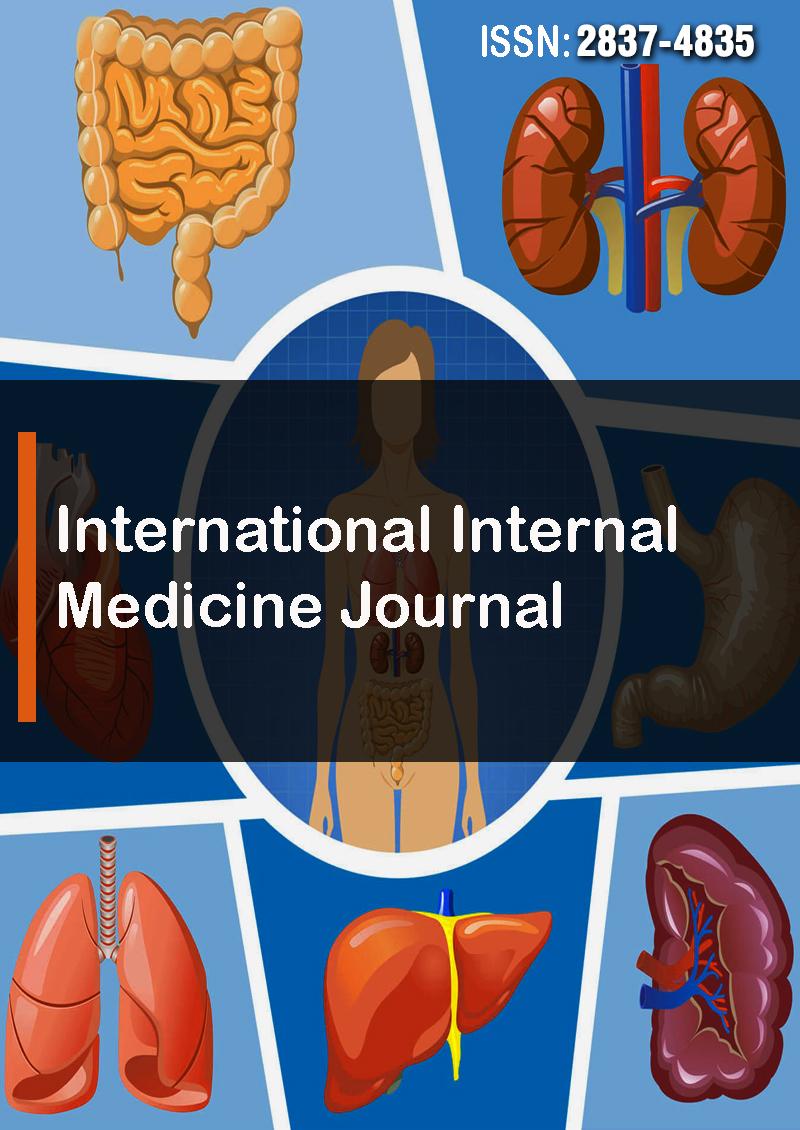Aims and Scope
Journal DOI: 10.33140/IIMJ
The International Internal Medicine Journal (IIMJ) ISSN: 2837-4835 seeks to explore and disseminate cutting-edge research that focuses on all medicinal and clinical issues related to it. The quality of the Editorial Board follows the rigorous Peer review process. The time to publish the articles from date of submission is maximum 30-35 days.
The journal covers a wide range of topics, including but not limited to:
• Epidemiology and Disease Prevention
• Health Promotion and Behaviour Change
• Healthcare Policy and Systems
• Occupational and Environmental Health
• Community Health and Wellness Programs
• Evidence-Based Interventions and Practices
• Infection diseases
• Immunology
• COVID 19
Audience: The journal is designed for researchers, healthcare professionals, policymakers, and public health practitioners passionate about preventive medicine and care. We strive to provide valuable insights and evidence-based knowledge that inform decision-making and drive improvements in population health outcomes.
Editorial Board and Review Process: At the International Internal Medicine Journal, our esteemed editorial board consists of leading experts in the field, ensuring the highest standards of scientific rigor and integrity. Our rigorous peer-review process guarantees that published articles meet stringent quality criteria and contribute significantly to the field.
Call to Action: We invite researchers and authors to submit their original research, systematic reviews, meta- analyses, case studies, and evidence-based practice papers. To learn more about our submission guidelines and formatting requirements, please visit our Author Guidelines page. Join us in advancing preventive medicine research and making a lasting impact on healthcare practices.
Some of the subject areas that the journal focuses on include:
•Cardiology
• Gastroenterology
• Endocrinology
• Pulmonology
• Hematology
• Nephrology
• Rheumatology
• Infectious diseases
• Neurology
• Oncology
• Dermatology
• Allergy and Immunology
• Critical care medicine
• Geriatrics
• Hospital Medicine
• Pain Management
• Sleep medicine
• Sports medicine
• Women's health Men's health
• Adolescent medicine
• Nutrition
• Genetics
• Pediatrics
• Integrative medicine
• Reproductive health
• Addiction Medicine
• Anesthesiology
• Psychiatry
• Radiology Surgery
• Ophthalmology
• Urology
• Wound care
• Rehabilitation medicine
• Occupational medicine Palliative care
• Vascular medicine
• Thyroid
• Diabetes
• Hypertension
• Heart failure
• Arrhythmia
• Gynaecology
• Otorhinolaryngology
• Non-surgical orthopaedics
• Palliative medicine
• Opioid-Related Disorders
• Depressive Symptoms
• Chronic Pain
• Cardiovascular Disease
• Epidemiology
• Alcohol use Disorder
• Healthcare Delivery
• Telehealth
• COVID-19
• Acupuncture
• Myocardial infarction
• Stroke
• Chronic obstructive pulmonary disease (COPD)
• Asthma
• Pneumonia
• Tuberculosis
• Sepsis
• HIV Hepatitis
• Malaria
• Lyme disease
• Dengue fever
• Ebola
• Influenza
• Multiple sclerosis
• Parkinson's disease
• Alzheimer's disease
• Epilepsy Schizophrenia Bipolar disorder
• Depression Anxiety
• Obsessive-compulsive disorder (OCD)
• Eating disorders
• Sleep disorders
• Cancer
• Breast cancer
• Lung cancer
• Colon cancer
• Prostate cancer
• Ovarian cancer
• Leukemia
• Lymphoma
• Melanoma • Carcinoma
• Sarcoma
• Chemotherapy
• Radiation therapy
• Immunotherapy
• Clinical trials
• Personalized medicine
• Precision medicine
• Electronic health records (EHR)
• Telemedicine
• Patient-centered care
• Evidence-based medicine
• Quality improvement
• Patient safety
• Medical ethics
• Health disparities
• Health equity
• Healthcare policy
• Healthcare economics
• Healthcare administration
• Medical education
• Continuing Medical Education (CME)
• Endocrinology Rheumatology
• Pulmonary diseases
• Cardiovascular diseases
• Haematology



